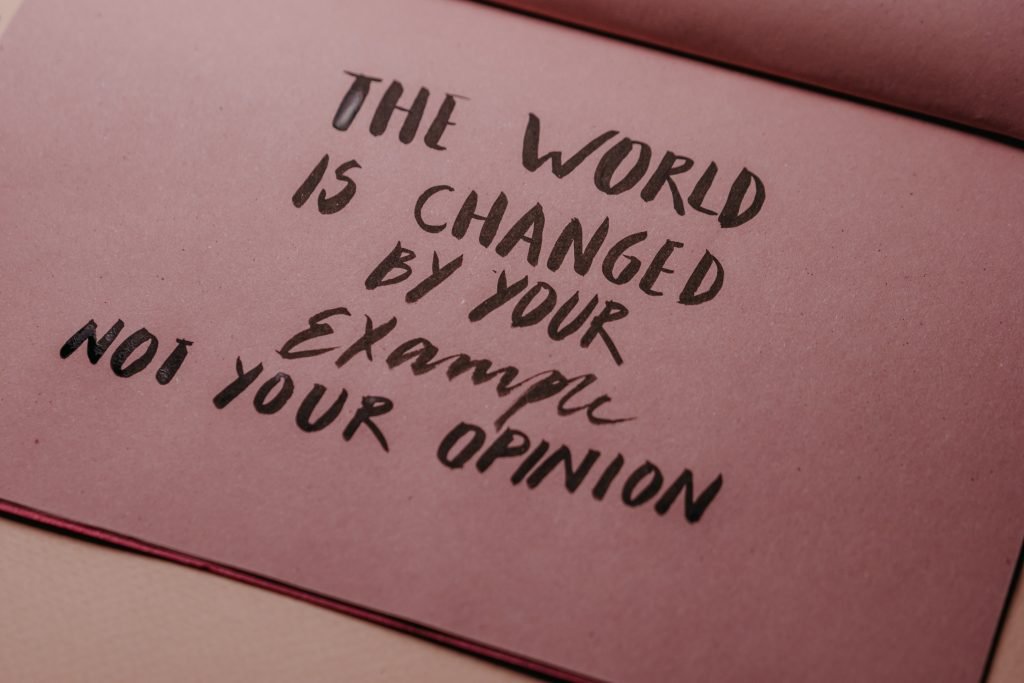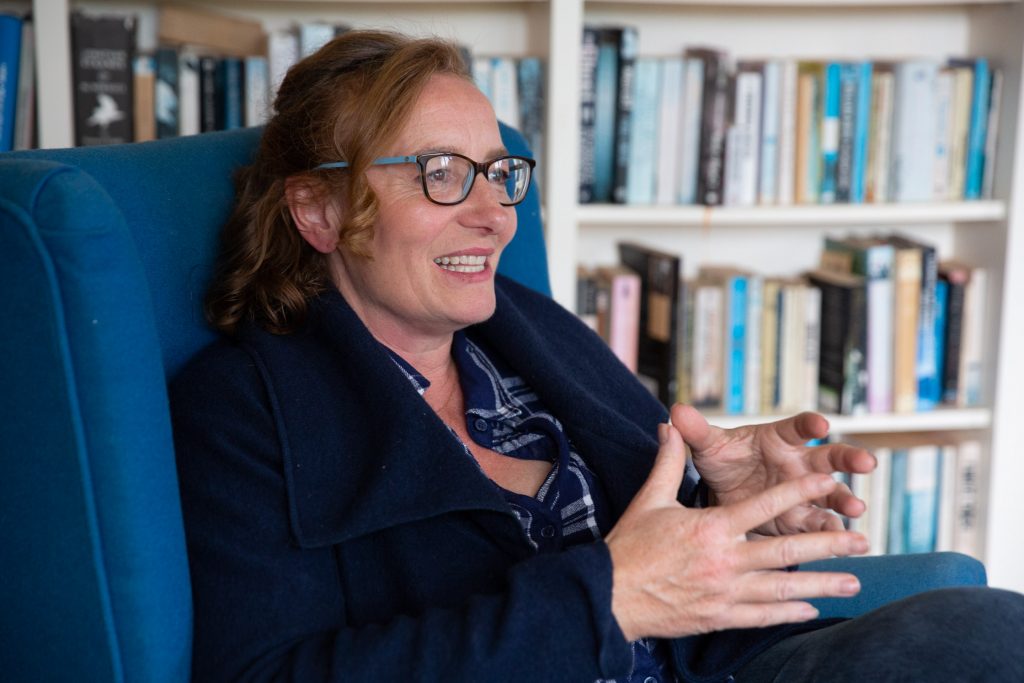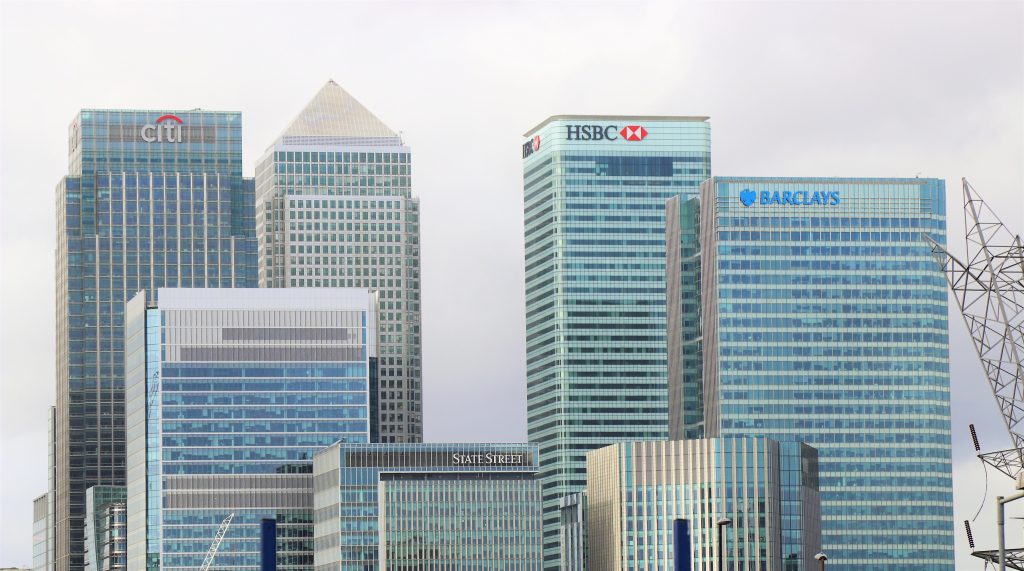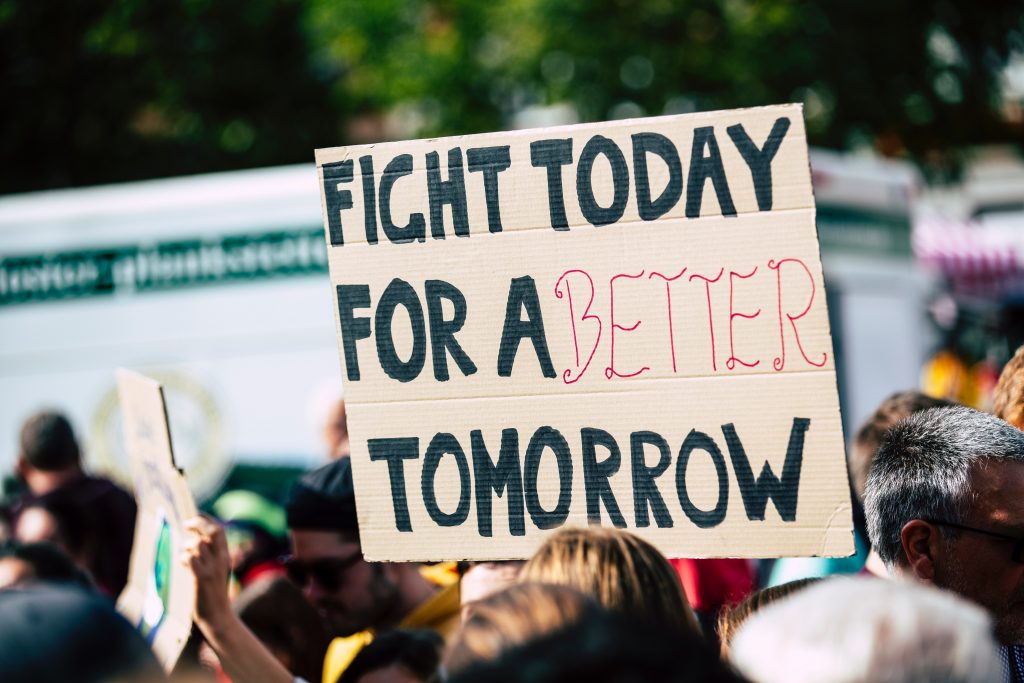Luxuriously soft sustainable bedding for eco-conscious sleepers
It’s old news – we all know we have to significantly reduce our carbon footprint by 2030 and be net zero by 2050 to to be in with a chance of stopping the planet heating more than 1.5C and destroying life on earth as we know it.
So, where we’re at?
Well, global energy-related CO2 emissions were 2% higher – by a not-insignificant 60 million tonnes – in December 2020 compared with December 2019, according to the latest report from International Energy Agency.
We’re already potentially in the midst of the sixth mass extinction, with species disappearing at an alarming rate, as you will no doubt be aware of if you’ve watched anything recent by Sir David Attenborough.
To be totally blunt, we can’t save the planet. We’re saving what’s left of it.
And the main motivation is pretty selfish, we need the planet to thrive so we can survive as a species by doing things like breathing (clean air), drinking (clean water) and growing and eating (food, of some kind or other).
So, how to be more sustainable? We all know the basics by now: don’t buy bottled water (or single-use plastic anything), walk, cycle or take public transport where possible, cut down your food waste etc.
Here’s our take on what changes will have the biggest impact:

1. How to be more sustainable in daily life: Buy more sustainable products
Yes. Definitely. But more importantly, stop buying unsustainable products.
Sorry to break it to you, but the impact of us an buying a walnut shell and recycled-plastic eco-friendly sponge (wrapped in plastic that may or may not be compostable) is barely going to make a difference if we’re driving to the supermarket to get it/ordering off Amazon/are using it combined with lots of toxic chemicals to get our kitchen sparkling clean.
Don’t imagine life is like a box of chocolates. Imagine life is like a pair of scales and on the one side we have to balance all the positive inputs we have and on the other you have all the not-so positive things we do.
We want the positive side to be as low as possible. And this doesn’t include being nice to friends and family (although, separately, of course, this is a good thing to do).
It involves eating enough local, organic, vegan meals to offset our flight to Spain. We can’t eat tonnes of meat and fly to the Spain and pay some company to offset the carbon (very dubious practice, in reality) and save the planet. It might make us feel better, but it won’t work.
On a similar note, we need to buy one top made from sustainable materials from an ethical fashion brand that pays its workers fairly and no polyester tops (recycled or otherwise) from a high street store that exploits its workers. Balance, right?
We caveat this – and all points – by saying it’s not just about your individual actions. This situation is not your fault or our fault.
Less meat and less travel. The two biggies when it comes to your carbon footprint.
Research released in 2018 revealed meat and dairy uses produces 60% of agriculture’s greenhouse gas emissions.
Around 1/3 of the food produced in the world for human consumption – 1.3 billion tonnes of food – is wasted.
One long-haul return flight of 11,000km equates to 2.47 tonnes of carbon dioxide.
Fundamentally, we need to change our economic system, which punishes well-intentioned people and companies by making it more expensive to do the right thing and rewards us by making it cheaper to pollute. All our suggestions are with a view of applying market pressure to get us to this point, faster.

2. How to be more sustainable: Talk about the steps you’re taking
There are definitely things each of us can do to play our part. And while each of us doing one thing is pretty small, together 7 billion actions have a big impact.
Although it’s not 7 billion people really… it’s more like 700 million people because 50% of emissions are caused by the richest 10% of people, according to an Oxfam report.
And don’t think that counts you out because you’re not Jeff Bezos or Kim Kardashian. According to one study, to be in the richest 10% of people globally you need to have wealth amounting to just under £50,000.
“The poorest half of the global population are responsible for only around 10% of global emissions yet live overwhelmingly in the countries most vulnerable to climate change”
Oxfam
To get back to the main point here, our actions (individual, government and business) have a huge impact on the world. Let’s engage in the conversation. That involves accepting responsibility, discussing the good the bad and the ugly, and, ultimately, finding ways to reduce our impact, together.

3. How to be more sustainable at home: Switch your energy supplier
We all now know carbon dioxide is the main greenhouse gas responsible for global warming.
But, did you know that heating our homes accounts for about a third of the greenhouse emissions produced on UK soil?
Yup. So, generating our own renewable energy with solar panels or heat pumps (admittedly, not so easy) or changing our supplier to a renewable energy supplier (one easy phone call) has a huge impact on our individual carbon footprint.
But, before you make that call you need to know that not all renewable energy companies are equally renewable.
We have a whole article about the big energy scandal: what you’re buying and what you think you’re buying. In a nutshell, some renewable energy companies invest in creating more renewable energy, some fossil fuel companies that offer renewable energy tariffs use the profits from the tariffs to invest more in fossil fuels.
Which? and Ethical Consumer have independent rankings for the best renewable energy companies.
We found the one we liked best and asked them to support our mission. And that one is Good Energy. You can read about our collaboration, here. Or our interview with their founder, Juliet Davenport, here. Or learn more about the big eco energy scandal and then go directly to their site to sign up here.

4. How to be more environmentally sustainable: Switch your bank out, where you invest money and your pension*
*(Soz Gen Z)
We need a whole article about money and it’s on our list, I promise.
Where we put our money is hugely important, because it’s not accruing interest in a bubble. The bank is investing on your behalf and for those minimal returns you’re getting? Well…
Since the 2015 Paris Agreement – you know, when 195 countries and the European Union signed on to keep global warming to well below 2°C and ideally 1.5°C – well, since then, 35 of the world’s major private banks have provided a total of $2.7 trillion in lending and underwriting to the fossil fuel industry – with fossil fuel financing increasing each year.
Continuing to exploit natural resources in a way that has a hugely negative environmental impact is not exactly inline with the agreement.
There are almost no company pension schemes in Britain that allow the employee to stop their money going into fossil fuel extraction.
And all the major Banks are implicated in this. Ethical Consumer lists Barclays as the biggest banker of fossil fuels in Europe, followed by HSBC (also M&S Money (50% HSBC) and First Direct (HSBC)).
On top of this, there are serious human rights abuses behind investments, including displacing local and indigenous communities for mining and extraction and deforestation and directly investing in arms.
Looking for some advice on where to start looking for an ethical bank? Until we create our guide, we suggest starting with Ethical Consumer.

5. How to be more sustainable: Engage in campaigning and politics
An encouraging stat we’ve seen is that it only takes 3.5% of the population to protest for change to occur.
Surely we can round up 3.5% of the population to protest against modern slavery, fossil fuels, agrochemicals?
Change is too slow because politicians and businessmen (yup, it’s still mainly men) are lining their pockets while we are distracted with pointing the finger at each other for eating meat/flying/existing in an imperfect world.
Choose one cause and follow it through. Whatever inspires and motivates you. Whichever injustice puts fire in your belly. Get in touch with the campaign organisations that are already working in that space that you feel aligned with. (Side note: please don’t set up your own, we don’t need another one, and change will be much faster and we’ll be more effective if we collaborate).
This is the one that people are least likely to do, but it’s possibly the most effective. So please, if you do one thing, become part of the 3.5%.

6. How to be more sustainable: Have less kids
Whaaaaaaat? We know. Controversial.* But, all other considerations aside, and if we are only taking carbon footprint into account, this is one of the biggest things we can do.
Adorable babies and the cutest of kids grow up to become carbon suckers just like their lovely mummies and daddies.
So, having less kids offers the opportunity to save a huge 58.6 tonnes of CO2-equivalent emissions per child per year compared to anyone with kids (your comeback when anyone questions how many flights you’ve taken that year and how you’ve afforded so many great holidays) (oops, that’s finger pointing, sorry).
Plus, if you don’t have any kids you don’t have to worry about the future you’re leaving behind for your offspring. So, you don’t have to worry about following a sustainable lifestyle. You can live in the now, baby! And continue to f*ck up the planet whenever and however the whim takes you.
Thanks for sticking with us on this one and you’re welcome.
*Controversial but completely tongue-in-cheek we feel we should point out, in case that wasn’t abundantly clear from the tone. This is a great example of why carbon accounting on its own is not a good enough metric for sustainability!
7. How to be more sustainable: Enjoy Life
On a more serious note, sustainability isn’t about sacrifice.
It’s about embracing life, loving each other and appreciating the beauty in our planet.
This is so important because we protect what we love (i.e. our kids).
So, enjoy life. Stop to smell the roses. Find the joy. Be more Mufasa! (Watch video above).


